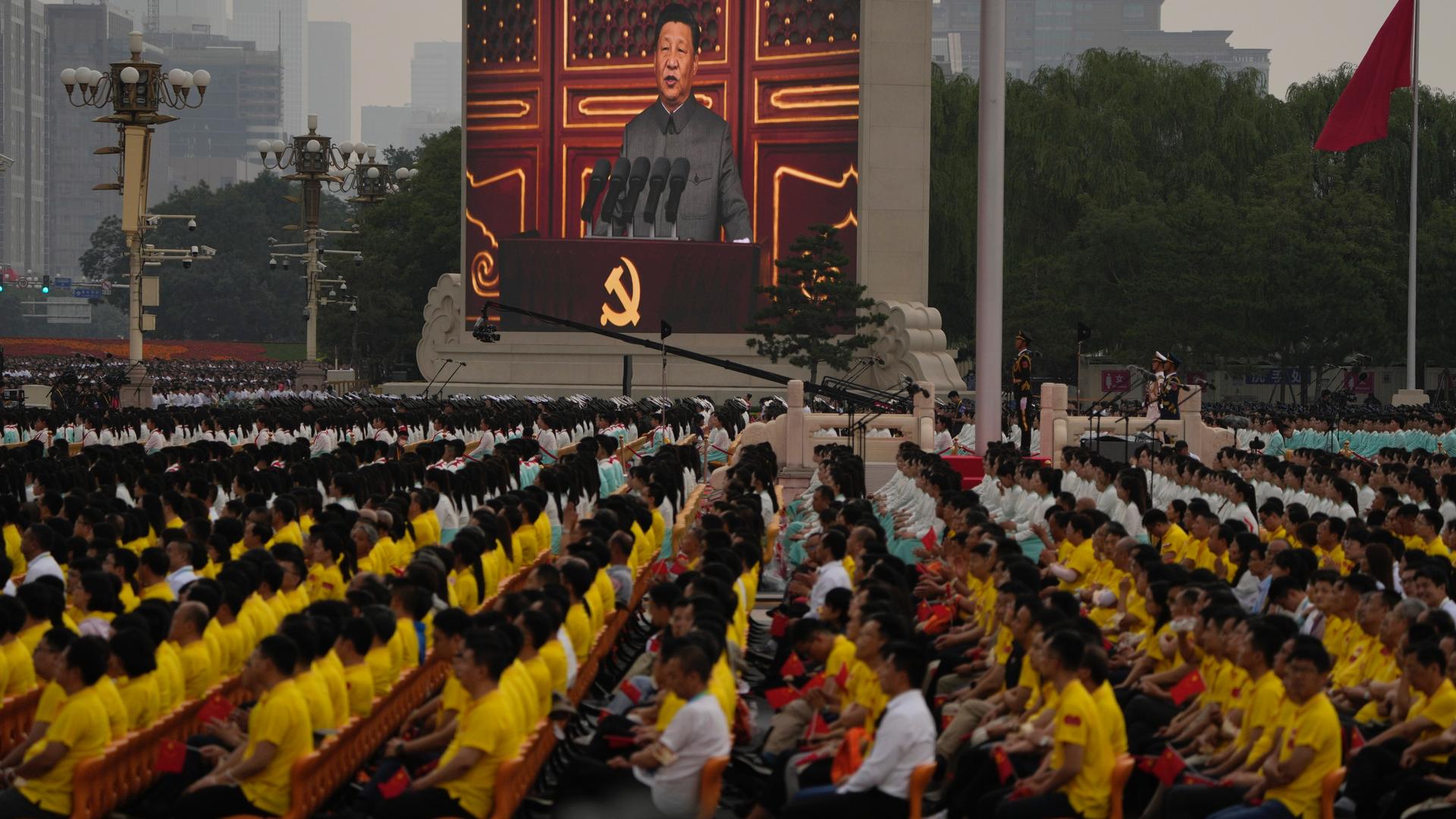Chinese President Xi Jinping warned Thursday that anyone who tries to bully China “will face broken heads and bloodshed,” in a defiant speech hailing the country’s rise at a celebration of the centenary of the founding of the ruling Communist Party.
In unusually forceful language, Xi appeared to be hitting back at the US and others that have criticized China’s trade and technology policies, military expansion and human rights record.
In an hourlong speech, he also said the nation must stick to its one-party rule, emphasizing the communists’ role in lifting China to global prominence.
Related: Massive celebrations planned for 100th anniversary of the Communist Party of China
Yangyang Cheng, a physicist and a fellow at Yale Law School and a columnist at SupChina, told The World that many of her family and friends in China feel joy and pride in the centenary.
But for her, the event stirs up complex emotions.
“As people, their emotions can be manipulated and they are susceptible to rhetoric. And what we are seeing now with China’s new superpower status is that it is increasingly displaying this hardened edge where national strength is interpreted as this unabashed, cynical power of force.”
“As people, their emotions can be manipulated and they are susceptible to rhetoric,” Yangyang said. “And what we are seeing now with China’s new superpower status is that it is increasingly displaying this hardened edge where national strength is interpreted as this unabashed, cynical power of force.”
The rally — which featured a military flyover and people waving Chinese flags and singing patriotic songs — in some ways, recalled the mass events held by Mao Zedong, communist China’s founding leader.
Xi even wore a gray buttoned-up suit like the ones favored by Mao and spoke from the same balcony atop Tiananmen Gate where the revolutionary leader declared the start of communist rule in 1949. More than 70,000 people attended the celebrations on Thursday, according to the official Xinhua News Agency.
Xi, who heads the party and may be considering a third term starting next year, received the biggest applause when he said the party had restored China’s dignity after decades of subjugation to Western powers and Japan in the 19th and 20th centuries, and turned it into the world’s second-largest economy in recent decades.
Xi declared that China had restored order in Hong Kong following anti-government protests in 2019, and reiterated the Communist Party’s determination to bring self-governing Taiwan under its control.
Both policies have been widely criticized by Western democracies. They have accused the Communist Party of abusing its power at home, including detaining more than 1 million Uyghurs and other mainly Muslim minorities for political reeducation in the northwest region of Xinjiang, and for imprisoning or intimidating potential opponents from Tibet to Hong Kong.
Xi also said the party would retain absolute control over the military, which now has the world’s second-largest annual budget after the US.
The party’s official narrative glosses over past mistakes or current controversies.
Xiao Qiang, editor of China Digital Times, grew up during the 1966-76 Cultural Revolution, which he describes as a “time of chaos and political repression” and economic deprivation. And despite the fact that the country opened up somewhat in the 1980s and 1990s, he said, the party’s grip on people’s lives remains firm.
“The relentless, determined and unforgivingness of the Chinese Communist Party to holding on power is getting stronger and stronger and more sophisticated.”
“The relentless, determined and unforgivingness of the Chinese Communist Party to holding on power is getting stronger and stronger and more sophisticated,” said Xiao, who also teaches at the University of California Berkeley, and directs the school’s Counter Power Lab.
“In this digital age, China actually can deploy targeted, seamless digital control through the technology, steering any conflict across mass society down to the well defined political path. And that’s what you’re looking at, of China today.”
But Yangyang says she is still hopeful about the future of China and its people.
“I think it is very important to understand that even in the most controlled environments, the control is not absolute.”
The Associated Press contributed to this report.
